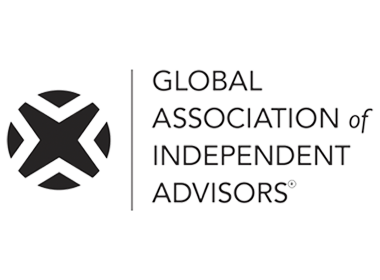The UK government is set to raise the Normal Minimum Pension Age (NMPA) from 55 to 57, effective 6 April 2028. This change will impact when individuals can begin drawing from their private pensions, including personal and workplace defined contribution schemes.
What Is the NMPA?
The NMPA is the earliest age at which most people can start accessing their private pensions. Currently, that age is 55—but from 6 April 2028, it will rise to 57. The government introduced this shift to reflect increasing life expectancies and to keep pace with the scheduled rise in the State Pension age to 67.
Who Will Be Affected?
If you were born on or after 6 April 1973, you’ll need to wait until age 57 to access your private pension. Those born between 6 April 1971 and 5 April 1973 may fall into a transitional category and could still access their pensions at 55—depending on their specific pension scheme and whether they qualify for protection.
Can Anyone Still Access Their Pension at 55?
Yes—if you have a Protected Pension Age (PPA). You may still be able to access your pension at 55 if:
- You were a member of a pension scheme on or before 3 November 2021, and
- The scheme’s rules permitted access before age 57 as of 11 February 2021.
It’s important to note: this protection only applies to specific pension schemes, not to all your pension savings across the board. If you transfer those benefits to a new scheme without PPA protections, you could lose that early access.
Why This Matters: Risks of Not Adjusting Your Retirement Plan
For those targeting early retirement—particularly at age 55—this change could significantly impact your financial plans. Relying on access to pension income at a certain age without adjusting for the new rules may result in an unexpected shortfall in cashflow or the need to delay retirement altogether.
Worse, failing to review your retirement income strategy now could mean making hasty or suboptimal financial decisions closer to your target retirement date.
How to Keep Retirement at 55 on Track
If you’re affected by the NMPA change but still wish to retire at 55, here’s how you can plan proactively:
- Bridge the Gap with Other Assets: Use ISAs, general investment accounts, or cash savings to fund the two-year gap until your pension becomes accessible at 57.
- Pension Segmentation: You may have different pensions with different rules—some of which might carry a Protected Pension Age. Reviewing each pot separately is key.
- Review Investment Strategy: Ensure your portfolio is structured to deliver the income and liquidity needed during the transition period.
- Cashflow Planning Is Key: A robust cashflow model can help you understand exactly when income will be available and where any funding shortfalls may lie. It also allows you to model different retirement ages, spending levels, and market conditions—giving you clarity and confidence in your long-term goals.
The Importance of Regular Cashflow Planning
Even if you’re not immediately impacted by the NMPA shift, cashflow planning is a cornerstone of successful retirement planning. It enables you to:
- Monitor how on track you are to meet your retirement goals
- Adjust your savings or investment strategies early
- Stress test your finances against inflation, market returns, and legislative changes
- Maintain flexibility and control over your financial future
Next Steps
- Check Your Pension Schemes – Confirm whether any of your pension pots qualify for a Protected Pension Age.
- Review Your Retirement Timeline – If you were aiming to retire at 55, update your cashflow plan to reflect the new pension access rules.
- Get Personalised Advice – A financial planner can help structure your assets to support a smooth and tax-efficient early retirement.
Seeking Expert Advice
Planning for retirement is no longer just about reaching a certain age—it’s about building the right strategy to access the right resources at the right time. With proper planning, you can still aim for financial freedom at 55—even if your pension has to wait until 57.
Benefit from comprehensive, integrated, and objective advice.
Let’s discuss your specific needs and how I can help you meet your objectives
Let’s start the conversation
Online enquiry form
Related posts
 Published On: November 14, 2025|5 min read|
Published On: November 14, 2025|5 min read|The Hidden Risks of Going It Alone with Your Investments
Many people start trading their life savings after reading a few investment books or watching online tutorials. Here’s why that can be dangerous — and when it’s perfectly fine to trade with spare money instead.
Read more
 Published On: November 10, 2025|5.3 min read|
Published On: November 10, 2025|5.3 min read|How to Choose the Right Financial Adviser Before Moving Abroad (UK Residents Planning to Relocate)
If you’re planning to relocate abroad, find out how a UK-qualified financial adviser can help you prepare. Learn about tax residency, Double Taxation Agreements (DTAs), the Statutory Residence Test (SRT), offshore accounts, and how to structure assets before you leave.
Read more
 Published On: November 7, 2025|6 min read|
Published On: November 7, 2025|6 min read|Should You Sell or Keep Your UK Property When Moving Abroad?
For many people leaving the UK, one of the biggest decisions isn’t what to pack, it’s what to do with the family home or investment property. Should you sell before you leave, or keep it and rent it out while you live abroad?
Read more















